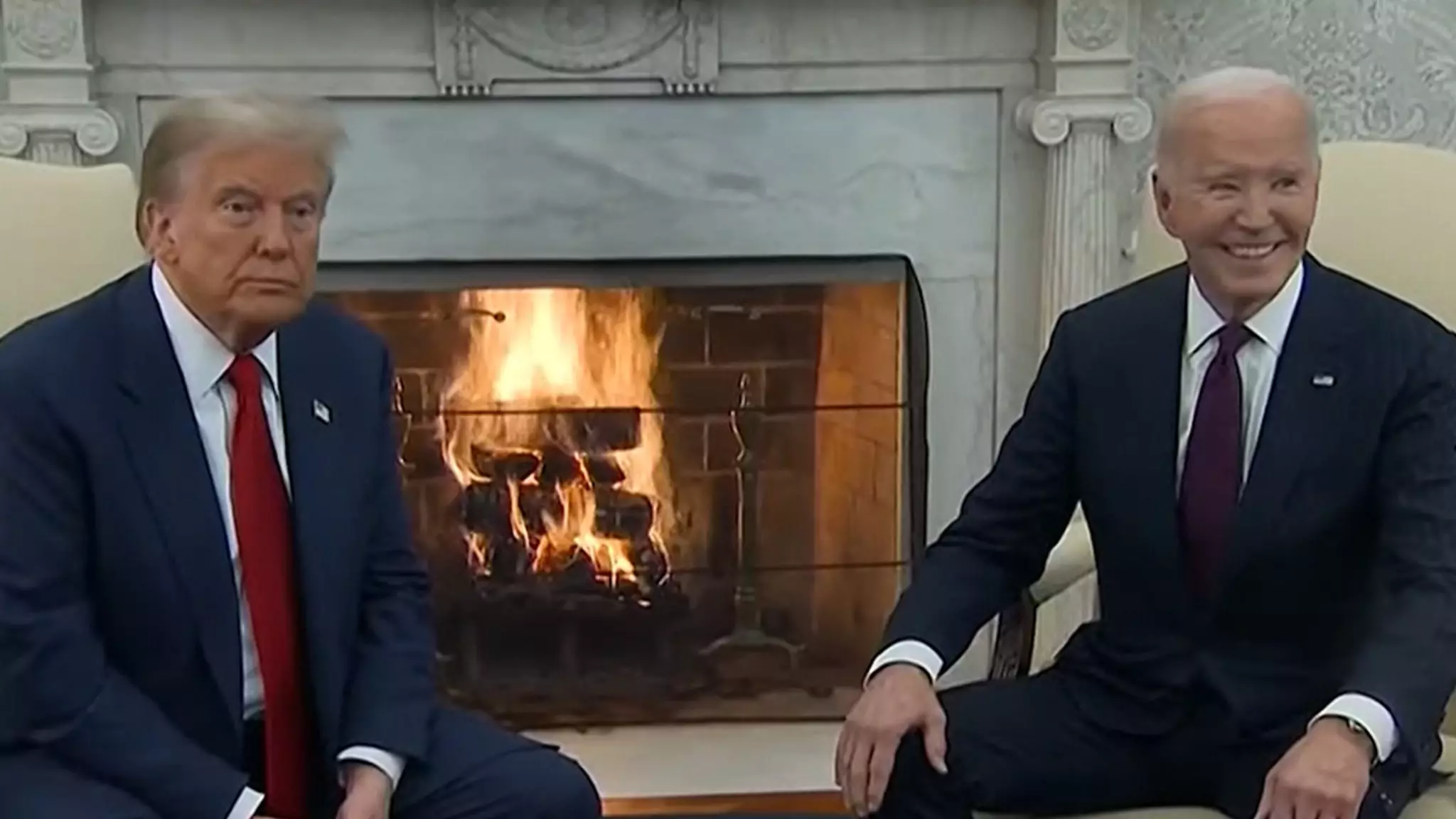In a symbolic gesture that captures the essence of American democracy, President-Elect Donald Trump made an unexpected visit to the White House for a meeting with President Joe Biden. This event, which initially seemed merely political, was steeped in historical relevance as it marked a significant moment during a highly contentious transition period. The optics of the two leaders sharing smiles and shaking hands for the camera belied the turbulent background of their relationship, dominated by accusations, disputes, and a highly polarized political atmosphere.
The Importance of Transitions Between Administrations
Traditionally, meetings between outgoing and incoming presidents are designed to facilitate a smooth transfer of power—a cornerstone of democratic governance. Trump’s visit, preceded by a dynamic that saw him challenge the legitimacy of the 2020 election results, showcased the underlying tension present in such transitions. While bushes of criticism surrounded Trump during his presidency, his acknowledgment of Biden for executing a “smooth transition” reflects a maturity that is often absent in political dialogues. Demonstrating a willingness to collaborate, even in the wake of previous rivalries, speaks volumes about the necessities of governance, especially in an era characterized by division.
Interestingly, the absence of Melania Trump from this historic meeting adds another layer of complexity to the narrative. Reports indicate that she deliberately chose not to participate in the customary tea with Jill Biden, which underscores the implications of personal grievances in political settings. Melania’s frustration stemming from the FBI raid on Mar-a-Lago not only highlights ongoing tensions but also illustrates how the fallout from past administrations’ actions can reverberate into future interactions. Her decision to skip the meeting serves as a poignant reminder that politics is not merely a matter of policies but is also influenced heavily by personal relationships and emotions.
Another noteworthy aspect of Trump’s upcoming presidency is his announcement of the Department of Government Efficiency (DOGE), with none other than Elon Musk at the helm. By appointing Musk, who is not only a tech mogul but also a personal supporter, Trump is indicating a desire to innovate and streamline government processes. This reflects a broader trend where leaders increasingly look to non-traditional figures from industries like technology to drive change in public administration. The inclusion of Musk and the lighthearted nod to Dogecoin further emphasize Trump’s distinctive style of governance that melds capitalism with tech-driven aspirations.
As Trump prepares for his impending term—with a Republican-controlled Senate and potential dominance in the House of Representatives—the stages for impactful governance are set. Yet, this newfound political landscape is fraught with challenges, notably from the shadows of January 6, 2021, looming over the transition. The necessity for unity and stability remains critical; both leaders must now navigate an atmosphere rife with skepticism while also striving to reassure a divided American populace. The journey forward will demand participation, dialogue, and perhaps even reconciliation in a nation thirsting for cohesiveness in unprecedented times.

Leave a Reply